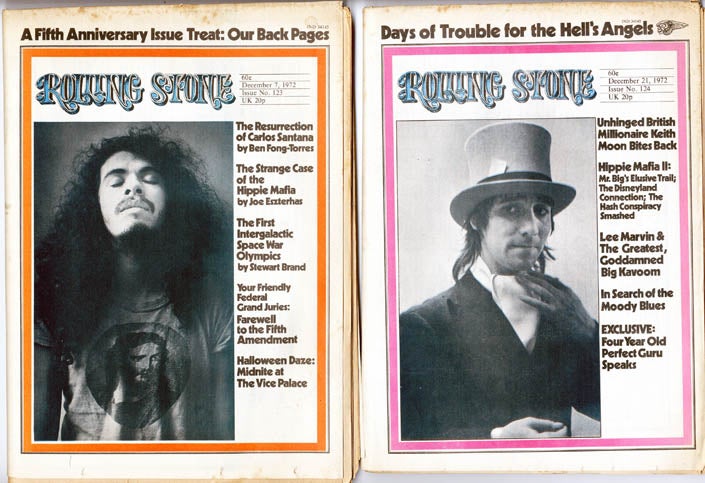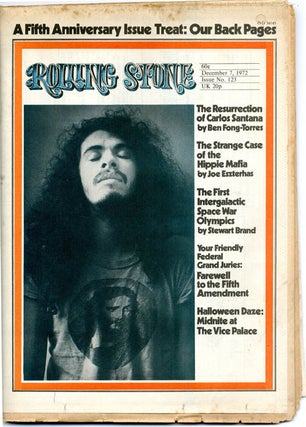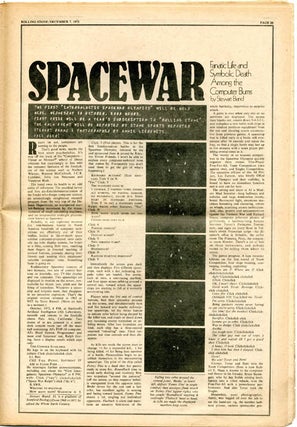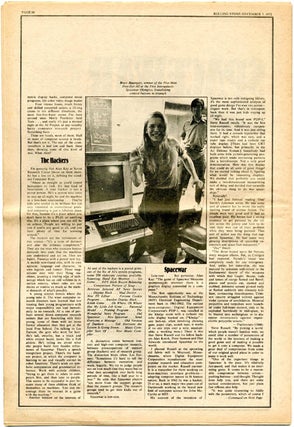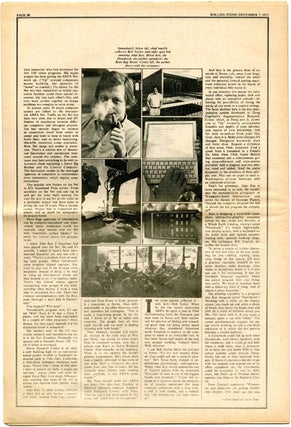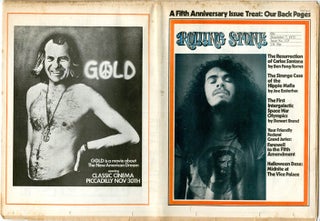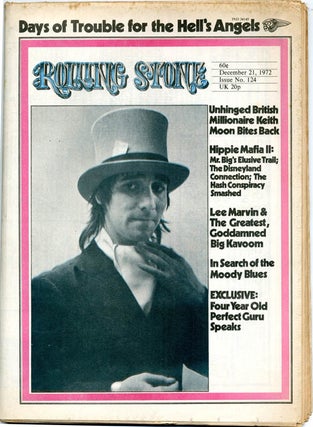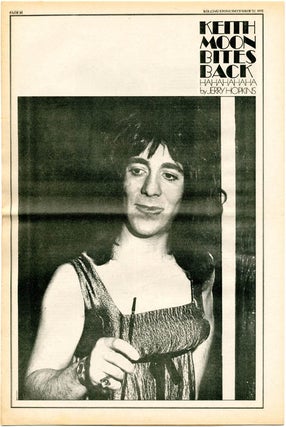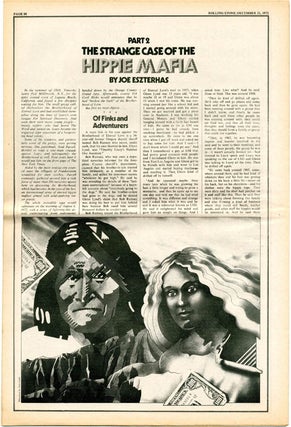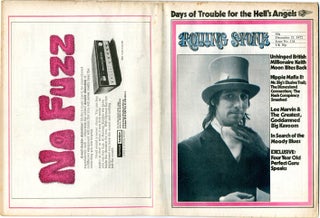119.
"Spacewar: Fanatic Life and Symbolic Death Among the Computer Bums" (6pp., photo-illustrated) in ROLLING STONE #123 (December 7, 1972 - UK issue).
Tabloid newspaper format, folded, as issued. 48pp. An important article in which Brand surveys the computer scene in Silicon Valley (a term first coined a year or so before) and connects military-academic-corporate computer research with the nascent countercultural hobbyist community, in particular the hackers, or "computer bums", who play an early computer game developed by Steve Russell called Spacewar. Brand's opening sentences - "Ready or not, computers are coming to the people. That's good news, maybe the best since psychedelics" - reflect both his sense that countercultural energy was on the wane ("laid low") and his insight that the spread of computing to a mass market would be more influential than the spread of mind-altering drugs.
In the course of his survey he observed people using computers for fun during their 'Intergalactic Spacewar Olympics', held in October 1972 at the Stanford Artificial Intelligence Laboratory, and describes what he saw as "the most bzz-bzz-busy scene I've been around since Merry Prankster Acid Tests… and really it's just a normal night at the AI Project, at any suitably hairy computer research project." Brand viewed hackers as countercultural pioneers ("a mobile new-found elite"), and recognised the potential for computers to become tools for personal and societal transformation, much in the tradition of his own Whole Earth Catalog.
Agents of psychedelic transformation also appear in this 5th anniversary issue of Rolling Stone, which prints the first part of "The Strange Case of the Hippie Mafia", Joe Eszterhas's 5pp. feature on The Brotherhood of Eternal Love, who ran the world's largest illicit LSD ring from their base in Laguna Beach, Southern California. The concluding part (6pp.) appears in ROLLING STONE #124 (December 21, 1972 - UK issue), also included here. Other features that appear in the two issues include: Jonh Ingham on Roy Harper; Ben Fong-Torres on Carlos Santana (8pp.); Jerry Hopkins on Keith Moon (5pp.); Ralph Steadman cartoons; Hell's Angels; more.
Partial discolouration along upper edge/spine of both issues, o/w Very Good.
 Back to top
Back to top

